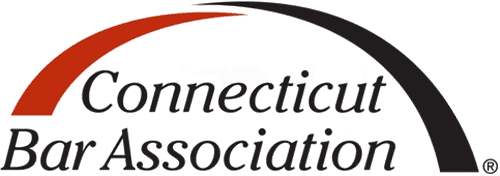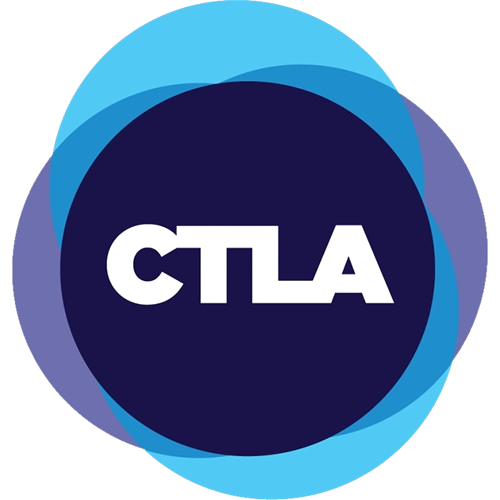Disability Planning and Special Needs Planning
By partnering with our firm, we provide the legal guidance necessary to protect your financial needs, access personal care, & navigate your way to a prosperous new normal.

What is Disability Planning and Special Needs Planning?
Leading with compassion first, we provide legal planning solutions for individuals and families facing changes which threaten independent living. With a primary focus on retaining financial security and obtaining support at home or in a community setting, we develop life care plans which address the changing needs of individuals and families due to aging or disability.
Our attorneys take a holistic, multi-generational approach to guiding families, and will help you to answer these questions, and any others that keep you up at night.
Without proper planning, disability can jeopardize financial stability and security. Beyond that, disability can impact an individual’s physical and emotional well-being, altering personal independence and family dynamics.
We understand how disability shifts the life course. By partnering with our firm, we provide the legal guidance necessary to protect your financial needs, to access personal care, and to navigate your way to a prosperous new normal.

Disability planning solves these issues:
- How can I provide or access the care and support my loved one needs?
- How can I afford to pay for the care for my loved ones?
- Who can I rely on for proper advice?
- How can I balance planning for loved one with my other family and work obligations?
- What are my options when my family home feels too hard to manage?
- How can I access vital care while preserving the legacy that my loved one worked a lifetime to build?
Planning involves:
Facilitating family discussions as to how to manage the shifting family dynamics.
Implement planning strategies that will help to maximize private assets while simultaneously filing a Medicaid application for State benefits to access timely care at home or in another appropriate setting.
The Who of Disability Planning
Aging & Elder Law
Moreso, we bear witness to the aging process in our spouses, parents, grandparents, and loved ones. Embarking on a planning journey to preserve assets, protect safety, and maintain independence, our planning solutions offer families insight into the needs and costs often associated with aging.
Elders, defined as those 65 years old, may need help to remain at home living independently through the end of life. This is the practice of Elder Law. Elder Law also addresses the emotional well-being of an individual and their family, capacity, and financial security.


Catastrophic Injuries
Our guidance is critical in making sure medical insurance coverage is sufficient for medical needs, rehabilitation needs, and care needs. We help the injured person to access short-term or long-term care disability benefits, and we can connect you with rehabilitation specialists and specialty medical facilities for therapy and rehabilitation.
As recovery progresses, we can help develop a plan for home modifications, provide contacts to folks in technology, and equipment that can provide support. We work with social workers, care nurses, caregivers, and caregiver agencies all with the intent to advance recovery efforts as much as possible. We know where and how to make sure you are receiving all state benefits without drawing down on savings accounts.
Legal needs during this time involve transferring financial authority to a trusted person to keep up with financial responsibilities. Planning involves understanding the extent of disability and how to overcome challenges you are facing in everyday life. We want to help you and your loved ones spend years together making memories and enjoying quality time, not stressing and wondering what is going to happen.
Because we understand the cost of being disabled and the care-needs of families, we often work with personal injury attorneys to develop life care plans which can increase the amount of a personal injury award. Additionally important is the use of special needs trusts to shelter personal injury awards
Early On-Set Medical Conditions

We collaborate, as needed, with other professions such as: specialized medical providers, primary care doctors, neuropsychologists, family attorneys, accountants, financial advisors, caregivers, dementia experts, care managers, and insurance agents to provide additional resources for our clients to produce a comprehensive plan.
We develop a plan to save money, modify home property, social security disability income, and put an estate plan in place which addresses the family’s needs.

Tools of our Trade
The goal of Medicaid planning is to ensure individuals can have their care needs met through services covered by Medicaid without depleting their entire savings or assets.
Medicaid Planning

Medicaid planning refers to the strategic process of arranging finances and assets to qualify for Medicaid benefits while minimizing the impact on one’s financial resources. Medicaid is a joint federal and Connecticut state program that provides healthcare coverage to low-income individuals, including the elderly and disabled.
Medicaid eligibility has very low income and assets limits. However, it is absolutely possible to save assets, “avoid spend-downs“, and qualify for Medicaid to pay long term care expenses at home, in a communal setting, or if needed, in a skilled nursing home.

Medicaid planning involves legally and ethically structuring assets, income, and financial resources to meet these requirements.
Common strategies in Medicaid planning include transferring assets to family members or trusts, diverting excess income or assets to preserve resources or spending on allowable expenses, purchasing exempt assets (such as a home or vehicle), and utilizing annuities or certain types of trusts.
The goal of Medicaid planning is to ensure individuals can have their care needs met through services covered by Medicaid without depleting their entire savings or assets. It is important to note that Medicaid planning should be undertaken with the guidance of legal and financial professionals familiar with Medicaid laws and regulations to ensure compliance and avoid unintended consequences.
Where can you receive care when on Medicaid?
In the Community

Staying Home: The ultimate goal whenever possible, through community-based programs such as the Connecticut Home Care Program for Elders or the Community First Choice Program for individuals under age 65.

Community-based long-term care refers to a range of services and supports provided to individuals who need assistance with daily activities due to chronic illness, disability, or aging, and who wish to remain living in their homes or communities rather than in institutional settings like nursing homes. These services are designed to help individuals maintain independence, dignity, and quality of life while receiving necessary care.
Examples of community-based long-term care services include:
- Personal Care Services: Help with ADLs such as bathing, dressing, grooming, and meal preparation provided by trained caregivers.
- Home and Community-Based Waiver Programs: Medicaid-funded programs that provide a variety of services (like case management, personal care, and respite care) to eligible individuals in their homes or community settings, rather than in nursing facilities.
- Adult Day Programs: Facilities that offer supervision, social activities, and health services during daytime hours for adults who need care while their caregivers work or attend to other responsibilities.
- Assistive Technology and Home Modifications: Equipment, devices, and home modifications (like wheelchair ramps or grab bars) that enable individuals to live independently and safely at home.
Community-based long-term care is often preferred by individuals and families as it allows for greater independence and personalized care compared to institutional settings. It supports the goal of aging in place and maintaining connections to one’s community and family.
Skilled Nursing Facilities
Care in a skilled nursing facility (SNF), often referred to as a nursing home, is designed for individuals who require higher levels of medical care and assistance with daily activities due to chronic illness, disability, or recovery from acute medical conditions. Overall, when a person’s care needs require medical intervention and monitoring, skilled nursing can be required.
Here’s what care typically looks like in a skilled nursing facility:
Medical Care
Personal Care
Rehabilitation Services
Nutritional Support
Social and Recreational Activities
To promote socialization and engagement, SNFs organize various activities such as group outings, games, arts and crafts, music therapy, and educational programs.
Special Needs Trust

Special needs trusts (SNTs) are legal tools designed to provide financial support and care for individuals with disabilities or special needs without jeopardizing their eligibility for government benefits, such as Medicaid and Supplemental Security Income (SSI).

There are 3 kinds of special needs trusts, and determining which one to use depends on who is funding it, the age of the primary beneficiary, and the purpose of the Trust.
- First party SNTs are funded with money of the primary beneficiary who is the only beneficiary of the trust. Remember this by remembering a first party narrative is a story about the person writing it.
- Third Party SNTs are funded with gifts from others such as inheritance and these MUST be established in advance and money must be directed specially to this Trust in advance.
- Pooled SNTs the only type of SNT available to someone who is age 65 or older.
Special Needs Trusts are helpful in the following ways:
Preserving Government Benefits Eligibility
Providing for Care and Support
The trustee of the special needs trust (often a family member, friend, or professional trustee) manages the assets and uses them to pay for goods and services that enhance the beneficiary’s quality of life and meet their specific needs. This can include hiring caregivers, purchasing assistive devices, modifying living spaces, and funding recreational activities.
Gifting
Flexibility and Control
Eligibility for this income benefit requires:
Qualifying Disabilities
To be eligible for SSDI benefits, individuals must have a physical or mental condition that prevents them from engaging in substantial gainful activity (work) and is expected to last at least one year or result in death. The condition must be severe enough to interfere with basic work-related activities.
Work Requirements
Applicants must have worked and paid Social Security taxes (FICA) for a certain number of years based on their age at the onset of disability. This is referred to as “work credits.” The number of work credits needed varies depending on the age of the applicant.
Application Process
Medical Evaluation
SSA reviews medical evidence provided by the applicant’s healthcare providers to determine if the condition meets the criteria for disability under SSA guidelines. In some cases, additional medical evaluations may be required by SSA-appointed doctors.
Social Security Disability Benefits provide critical financial support to individuals who are unable to work due to a disability, helping them maintain a basic standard of living and access necessary medical care.
Disability Planning and Special Needs Planning
The best estate plans ensure your legacy is passed on with effective tax planning, creditor protection, and alignment with your wishes. It’s more than just documents; we’re right by your side to guide you through these important decisions specific to Connecticut law.




















Social Security Disability Income Benefits
Social Security Disability Benefits (SSDI or SSI) are a form of financial assistance provided by the U.S. Social Security Administration (SSA) to individuals who are unable to work due to a qualifying disability. Payments are made in the form of monthly distributions based on work history.